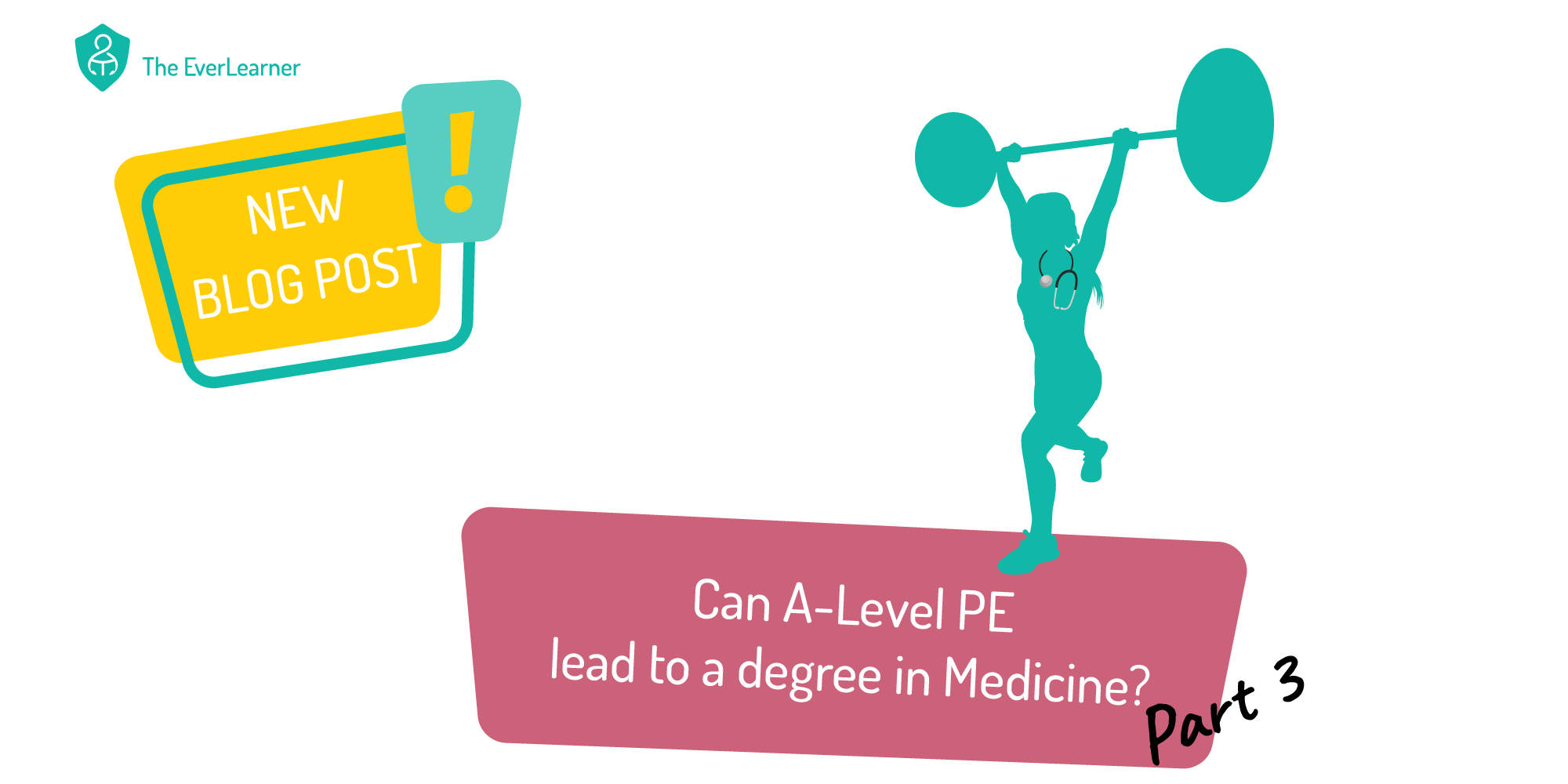Results Day and Me
Hello there! My name is James and I am a blog writer, publisher, teacher and parent. At home, I (we) have two daughters. Anna is 18 and completed her A-levels in summer 2023. Georgina is 15 (16 next week) and completed her GCSEs also in summer 2023. My professional role involves writing about GCSE and A-level exams a great deal as well as publishing a very significant learning and revision offer, which is used by 200k students annually. Therefore, my experience of exam season and the impending results days in 2023 has provided me with a unique perspective from a parental, teacher and student perspective combined and it is for this reason that I am writing this post.
As so many of you will know, being a parent and working full time is a difficult balance. Commonly, I find myself perceiving conflicts between the two roles and, as my children have studied their exam courses and sat their exams, I have felt the need to be more available to them. For context, Anna has studied A-level biology, chemistry and PE and Georgina has studied the core GCSE subjects as well as art, geography, Spanish and drama. Between them, they sat 34 exams in May and June 2023. Both of them are studious. Both of them are determined to represent themselves well. Both of them have a high value for education. However, they are also vastly different in their approaches to school, college and exam preparations and this has challenged their mum (Marta) and me a great deal. They are so different, in fact, that we quickly came to the conclusion that what might work for one, would almost certainly not work for the other. Therefore, we decided together to identify a series of values that we believed would be functional for both of them. Furthermore, Marta and I decided to resource these values and I will try to detail these for you below.
Remember, I am not claiming that these values are “right” and certainly not “right for every family” nor do I know for sure what the impact of these values has been. As I write this article, no results have been received. The proof will be, I guess, in the pudding itself. However, we have observed both of our daughters give their studies and associated exams a “right good go”. We witnessed both of them managing the stress of the exam period with positivity and approach behaviours. We witnessed both of them maintain their health physically, emotionally and socially, even when the pressure was on. Therefore, I feel these values are worth sharing from a parental perspective:
- Value 1: The exams are their exams. The achievements are their achievements. The responsibility is their responsibility.
- Value 2: Practical support is crucial during the revision period.
- Value 3: Arousal, stress and anxiety can be positive when managed correctly.
- Value 4: Listen more than talk.
- Value 5: Motivation is always trumped by discipline.
- Value 6: Calmness is key.
- Value 7: Be together!
There is detail behind all of these values and I want to take the opportunity to describe what I mean and what my experiences were. Let’s take them in turn.
Value 1: The exams are their exams. The achievements are their achievements. The responsibility is their responsibility
This value may seem a bit jarring when you first read it. You could interpret it as an abandonment of one’s children. It isn’t. Rather, it means that whatever happens, the child/young person/son/daughter/student has ownership. Furthermore, it develops the idea that there is something to achieve rather than something to fear. I always try to encourage my daughters to accept that their time, energy and commitment are an investment. If they put time in and develop good – let’s say – revision processes, that time will be paid back to them many times over with their experience of success and, later, good results and next-step opportunities.
It goes further too. If one of my daughters makes a cynical comment about a course or an exam – parents will be very aware of these – such as “What’s the point?” or “This exam is rubbish!”,we always try to reframe these “issues” as opportunities that they have ownership of. “Everyone hates this paper” would be reframed to “Well, that means it’s a great opportunity for you to mark yourself out from the crowd”, meaning that if they do well where many others may struggle, this gives them the advantage.
Finally, as results arrive, whether positive or negative or – more likely – somewhere in between, the ownership of these results will be theirs. They will be truly connected to their achievements or, where action is required, know that they are responsible for this action.
Value 2: Practical support is crucial during the revision period
This one is very simple. Marta and I decided that every day, with the exception of a few lie-ins at weekends, would be structured like this during the revision and exam process:
| 06:45 | Marta and James start work in the office |
| 07:30 | Work stops for either Marta or James and that person makes a family brekkie (normally just simple stuff like toast or cereal or fruit but with the occasional cooked item chucked in) which is eaten at the table. |
| 08:00 | Breakfast clear-up - EVERYONE |
| 08:05 | Study/work.school/college |
| 16:00 | Marta and James finish work (early) and do a little house tidy up and dinner prep. |
| 19:30 | Dinner together |
Now, there were many days that functioned differently, of course, but this was the model. Two meals together a day at least (sometimes lunch too) and the home in an organised and calm state.
I strongly believe that this had a major influence on the kids. Regularity, calmness, structure, clarity but, perhaps most importantly, the practical barriers to doing what they need to do were removed.
I would also like to add that before dinner we commonly all went to the gym together.
It needs to be said that we have many areas where this was made easier: Marta and I work from home, we work together and can support one another, both Marta and I enjoy cooking, etc. This made things very straightforward from a practical perspective.
Value 3: Arousal, stress and anxiety can be positive when managed correctly
Revision and exams are stressful. They just are. There is no point thinking the opposite. HOWEVER, arousal, stress and anxiety are also personalised and subjective experiences. Hence this value.
Early on, Marta and I decided on the following:
- Cognitive anxiety in the form of worry, apprehension and fear is a fully negative experience and we are determined to minimise these in our students.
- Somatic (physical) anxiety such as a churning tummy or butterflies are (if interpreted correctly) facilitating experiences.
So, if we believe that anxiety is inevitable and that cognitive anxiety needs to be reduced, whereas somatic anxiety needs to be managed, our conversations and feedback to Georgina and Anna are super simple. For example:
Now, these examples are slightly contrived but all of them, in some way or another, occurred in our home repeatedly. I strongly believe that it is these approaches that helped us to manage anxiety in a better way.
Value 4: Listen more than talk
Despite value 3, we tried not to advise too much. We came to the value that listening and understanding were powerful and that, giving advice from the perspective of two 40+ year-olds, would be unlikely to hit the mark. Therefore, listening was our key communication value. We listened as much as possible and only advised where it was practical.
We also gave lots and lots of hugs.
Value 5: Motivation is always trumped by *discipline
*I am referring to some notion of personal discipline here not the behaviour management sense of the word.
Out of all of these values, this is the one I feel strongest about. The more I teach… the more I learn… the more I realise that the concept of motivation is not the driver of success. As far as I can tell, motivation is very, very temporary. People feel motivated in a moment and that motivation can, and often does, undulate. However, discipline (which is a word that, for some reason, always feels heavier than it should) can be as permanent as we make it.
I want to make a bold and, to a degree, unqualified statement: I behave as though there is no single relationship between motivation and behaviour.
Now, this is a personal choice. Nothing more than that but, when I speak to my daughters, I always try to encourage behaviours first. We could call this discipline, I guess. Another way of thinking about this is asking the question “why does motivation need to precede behaviour?” or “Why can’t behaviour cause motivation.” Think about your own work (assuming you are a parent and/or a teacher). Isn’t it often true that, once a task or experience is begun, motivation can flow from there? This is often my experience and amongst the reasons I place emphasis on discipline/behaviour first.
Value 6: Calmness is key
Every household will have its own culture. Every household will include different characters and personalities, some of which may be more or less volatile. I, for example, am probably the least consistent personality in my household. I can be moody, get frustrated and find myself apologising on a regular basis. But, during exam season, I (we) tried to find our most Zen-like state.
As mentioned above, there will be anxiety in the home. There is no preventing this. Therefore, the key is to manage it in the best way. I found that these behaviours worked:
When Anna or Georgina were annoyed, we would….
- …initially “match” them by showing understanding or acknowledgement of their annoyance and then would “contrast” them by doing or saying something like “there’s another way of looking at this, you know.” (see value 3).
- …change spaces. If the anger, say, was displayed in the living room, ask them to come with you and sit in the garden or talk to you as you hang the washing. Anything!
- …show utter belief in them. “Dad, I’m going to fail.” “Well, we have a disagreement then because I fundamentally believe in you.”
- …use humour (cautiously). “Dad, I can’t keep going. I can’t revise any more.” “What!! S**t!! Call the meteorological office and tell them that the world is about to stop spinning.” This one’s a bit cheesy to be honest but it’s the kind of stuff I would say in our family culture. I might follow it up with “Anna/Georgina, just to remind you we are currently sat on an rotating, organic spaceship, circling a gigantic explosive device whilst hurtling through potentially infinite space. I promise you that if you do an hour’s less revision tonight, it will be fine.”
Now, I am not advising anyone to use these methods but simply mentioning some of the things we did. Everyone is different but this was our approach.
Value 7: Be together!
If you have read this far, you will already know this about our family. We tried very hard to be together as much as possible. Every family has its own structures and challenges but this was our approach.
From Marta and my perspective, we lived the experience of exams with our children and hope to again in the future. In some bizarre way we look forward to it as we see our kids experiencing and responding to challenges. We have learned so much about them from these experiences and I wouldn’t take that away for anything.
I also want to pay a little homage to young people. Over the revision period I saw my own children as well as the thousands I worked with directly through my work giving everything they could. It is actually inspirational and, just in case you are a parent/teacher/adult that tends to believe things like “Young people today are lazy.” (replace lazy with any adjective you wish), you are wrong. It is very simple what young people today are. They are exactly like you and I. They need belief, encouragement, support, security and love. If they have this, and in the presence of the right resources, they will fly every single time.
Thanks for reading.
As I complete this, A-level results day 2023 is tomorrow and GCSE results day 8-days away. Gulp! Anna (18-year old) needs A, A, A* in order to achieve her first choice place of Medicine at Queen’s, Belfast. I’m forcing myself to be calm (value 6) but the reality is bricking it. We’re all human, after all! ;)
%20Text%20(Violet).png)


